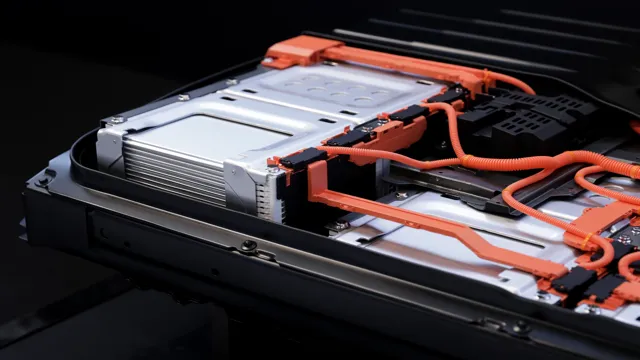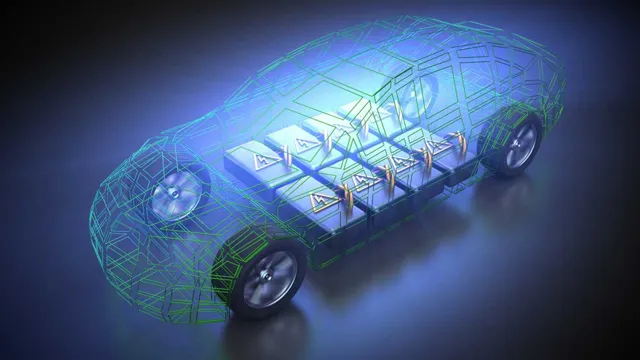Stay Charged: How Extreme Cold Affects the Lifespan of Electric Car Batteries
Driving in the winter can be challenging and intimidating, especially when it comes to electric cars. One of the biggest concerns that drivers have is whether their electric car batteries can survive in the cold. Indeed, it is a common misconception that electric car batteries die in the cold weather.
But is this really true? Can low temperatures have a significant impact on the performance and lifespan of electric car batteries? In this blog post, we’ll explore the effects of cold weather on electric car batteries, debunk some of the myths surrounding this topic, and offer useful tips to keep your EV running smoothly during the winter months. So, grab a cup of cocoa, and let’s dive in!
Overview of Electric Car Batteries
Do electric car batteries die in the cold? Well, it depends. Electric car batteries are affected by the temperature, just like any other battery. However, extreme cold can cause the battery’s capacity and overall performance to decrease.
When electric car batteries are exposed to freezing temperatures for an extended period, it can harm their ability to hold a charge. This means that drivers may experience reduced range and lower efficiency when operating their electric vehicles in the cold. To counteract this issue, many electric car manufacturers have implemented thermal management systems that regulate the temperature of the battery, reducing the impact of cold weather.
So, although electric car batteries can be impaired by cold temperatures, advancements in technology are making these vehicles more viable in colder climates.
What happens to electric car batteries in cold weather?
Electric car batteries serve as the lifeblood of modern electric vehicles, providing the necessary power for the motor to run. However, in cold weather, these batteries can experience a significant drop in performance due to lower temperatures. When the weather turns cold, the battery’s chemical reaction that powers the car slows down, causing reduced range and power.
This occurs because the chemical reactions that occur within the battery require heat, so colder temperatures cause sluggish performance. To combat this problem, some electric vehicles now come equipped with battery heating systems that allow the battery to be preheated before use. Additionally, manufacturers are working on developing enhanced battery technology that can perform in cold weather conditions to improve the overall range of electric vehicles during the winter months.
Overall, while cold weather can certainly affect the performance of electric car batteries, innovative solutions are being developed to ensure that drivers can continue to rely on electric vehicles even in freezing temperatures.

The effects of temperature on battery life
Electric Car Batteries Electric car batteries can be greatly affected by the temperature of their surroundings. Extreme cold or hot temperatures can significantly reduce the lifespan and performance of the battery. When it’s too cold, the battery can become sluggish, slowing down the charging and discharging process and reducing its capacity.
Meanwhile, when the temperature is too high, the battery can suffer from thermal runaway, which damages its internal components and can cause a fire. It’s recommended that electric car owners store their vehicles in a temperature-controlled garage or parking lot to help preserve the battery life. Manufacturers are also working on developing batteries with better temperature management systems to mitigate these issues and improve the overall performance of electric vehicles.
In the end, it’s important to consider the climate you live in and how it may affect the longevity of your electric car battery.
Tips for Winter Driving
Many people wonder if electric car batteries die in the cold. While it is true that cold weather can affect battery performance, modern electric vehicles can still function in low temperatures. It is important to note that below-freezing temperatures can decrease the range of an electric car, so it is best to plan your route accordingly.
Additionally, using the car’s cabin heater can also affect battery life, so it is recommended to use alternative methods of keeping warm such as heated seats or a small portable heater. Ensuring that your electric car is properly charged and maintained can also help improve its performance in cold weather. Finally, pay close attention to the road conditions and drive slower than usual to avoid potential accidents during the winter months.
Preventative measures to take before hitting the road
Winter driving can be a daunting task, but taking preventative measures before hitting the road can help ensure a safe journey. Start by checking the weather forecast and road conditions to determine if it’s safe to travel. Make sure to clear any snow and ice off of your vehicle before driving, as it can obstruct visibility and impair your ability to drive safely.
It’s also important to check your tires regularly and make sure they have enough tread to provide traction on snow and ice. Additionally, consider packing an emergency kit in your car, including blankets, food, and water in case you get stranded. Remember to drive carefully, keep a safe distance from other vehicles, and use your headlights to improve visibility.
By taking these simple precautions, you can stay safe and enjoy your winter travels.
How to protect your battery during the winter months
Winter is here, and with it comes colder temperatures that can be hard on your car battery. When the mercury drops, batteries lose some of their power, which can lead to your car struggling to start. But fear not, as there are plenty of things you can do to protect your battery during the winter months.
Firstly, make sure your battery is fully charged before the cold weather hits. If your battery is old or weak, consider replacing it before winter arrives. You can also reduce the strain on your battery by turning off all unnecessary electrical components, such as headlights, before starting your car.
Additionally, consider investing in a battery charger or maintainer, which can help your battery maintain its charge throughout the winter. By taking these steps, you can ensure that your car starts easily and reliably, even on the coldest of winter days.
What to do if your battery dies in the cold
Winter driving can be quite daunting, especially if your battery dies in the cold. But fret not, as there are a few things you can do to prepare for such an event. First and foremost, it’s crucial to keep your car battery maintained and regularly checked.
It’s also a good idea to keep an emergency kit in your car during the winter months, including a warm blanket, a flashlight, and some snacks in case you get stranded. When you find yourself in a situation where your battery dies in the cold, try boosting it with jumper cables or a jump starter. If that doesn’t work, call a towing service or a friend for help.
While it’s tempting to rev your engine, especially in cold weather, it’s best to avoid doing so as it puts unnecessary strain on your battery and engine. Remember, taking preventative measures such as regular maintenance can go a long way in preventing such issues from occurring in the first place. Stay safe, stay warm, and happy driving.
Conclusion
In conclusion, do electric car batteries die in the cold? Well, much like our human bodies, extreme temperatures can take a toll on our energy levels. However, with proper preparation and care, electric car batteries can weather the winter just fine. So, don’t let the fear of a chilly commute freeze your eco-heart – embrace the magic of electric cars, and let the good vibes drive you forward.
“
Yes, but with some preparation, you can extend the life of your battery.
As the temperatures drop and the winter season approaches, it’s important to prepare your vehicle for the changes ahead. One aspect many drivers overlook is the health of their car’s battery. Freezing temperatures can drain your battery’s power, leaving you stranded on the side of the road.
However, there are a few tips you can follow to extend the life of your battery. First, make sure to regularly check and clean your battery’s terminals. Dirt and grime can build up, leading to a weaker connection.
It’s also important to keep your battery charged, especially if you’re not driving your car as often. Consider investing in a trickle charger that can maintain your battery’s charge during long periods of disuse. Additionally, be mindful of your electrical use while driving.
Avoid leaving your radio or headlights on for extended periods of time, as this can quickly drain your battery’s power. Remember, a well-maintained battery is key to safe and reliable winter driving. By taking these simple steps, you can avoid the frustration and safety hazards of a dying battery.
Stay informed and stay safe this winter.
Winter driving can be a real challenge, particularly for people who live in areas where snow and ice are common. To stay safe on the road this winter, there are a few tips you should keep in mind. Firstly, make sure your car is winter-ready by checking your tyres, brakes, battery, and windshield wipers.
Secondly, slow down and leave plenty of distance between you and the car in front of you to give yourself plenty of time to react. Remember, stopping on icy roads can take up to ten times as long as it would on dry roads, so it’s always better to assume you’ll need more time and space. Finally, avoid sudden movements and actions like harsh braking or accelerating, as these can cause your car to lose traction and slide on slippery roads.
By following these simple tips, you’ll be able to stay informed and stay safe on winter roads, no matter how challenging the conditions might be.
Sources
Many electric car owners find themselves wondering, “Do electric car batteries die in the cold?” The answer is yes, they can. The battery’s ability to generate electricity is reduced when it gets cold, which can also increase the internal resistance of the battery. This reduces the overall range of the vehicle.
However, it’s worth noting that some electric cars are designed with insulated batteries, which can help mitigate the effects of cold weather. Additionally, preheating the car while still plugged into a charging station can help warm up the battery and improve its performance. Overall, if you live in a cold climate and own an electric car, it’s important to understand how cold weather can impact the battery and take steps to mitigate any negative effects.
FAQs
How does cold weather affect the life of an electric car battery?
Electric car batteries can experience reduced performance in cold weather, which can lead to a shorter battery life. However, many electric car manufacturers have designed their batteries to withstand harsh temperatures and offer cold weather packages that can help mitigate the impact of colder temperatures on the battery.
What steps can I take to preserve my electric car battery in the winter?
There are several steps you can take to preserve your electric car battery in cold weather. These include parking your car in a garage or covered area, using a battery blanket or heater, preheating the cabin and battery before driving, and reducing your use of battery-draining features like seat heaters and defrosters.
Can cold weather cause my electric car’s range to decrease?
Yes, cold weather can cause an electric car’s range to decrease due to the reduced performance of the battery. Additionally, using battery-draining features like seat heaters and defrosters can further impact your car’s range in cold weather conditions.
How can I tell if my electric car battery is being impacted by cold weather?
There are several signs that your electric car battery may be experiencing the effects of cold weather, including reduced range, slower charging times, and regenerative braking that is less effective. It’s important to monitor your battery’s performance and take steps to mitigate the impact of cold weather on your car’s battery.






